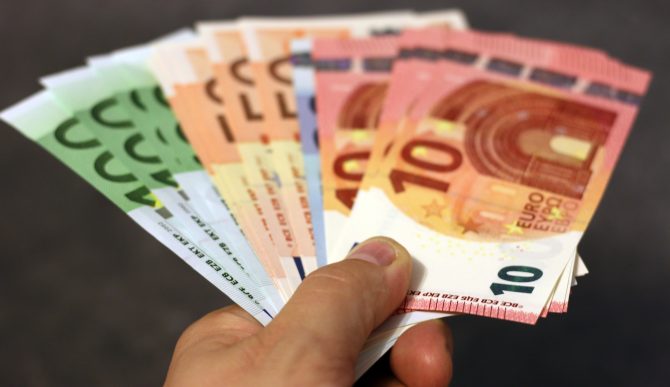Ready to book a trip abroad? Learn how to navigate currency conversion, save on exchange rates, and avoid hidden fees for stress-free travel with our guide!
Whether planning your first international trip or going on another cross-border escapade, learning how to handle foreign currency is crucial.
You may have surfed the internet for the best vacation spot, chill accommodations, and travel items. Still, your preparation is incomplete without a solid understanding of how to pay for your expenses at your destination.
To help you make confident and well-informed financial decisions in the foreign country of your choice, we’ve collated this guide featuring all you need to know about money conversion.
What is Currency Conversion
Currency conversion occurs in forex trade, where one currency is sold for another. Selling your cash for another is useful when you are traveling to a foreign country and will need the local notes to fund your expenses.
To convert one currency to another, you need to know the exchange rate. The exchange rate is the factor that provides the equivalent of one currency in terms of another.
For example, if the exchange rate between the US dollar and the British pound is 0.80, then 1 USD equals 0.80 GBP, meaning they are worth the same and can be used to pay for the same item.
The exchange rate changes occasionally, so you should keep tabs on the latest rates before traveling. You can find exchange rate info online on popular and trusted sites like Yahoo Currency Converter, banks, or exchange bureaus.
How to Calculate Currency Conversion
Most online converters can help you calculate the currency conversion easily, but knowing the old way is always a plus. The basic formula for money conversion is:
Amount in foreign currency = Amount in home currency × exchange rate
Assume you have 100 Singaporean dollars, and the exchange rate between Singaporean dollars and US dollars is 0.73; then you would have 73 US dollars, as 100 × 0.73 = 73.
With this in mind, you can know what to expect to receive when you visit a place to convert your cash to a local currency.

Where to Convert Currencies
Converting currency to other types attracts conversion fees. Although these fees may look small initially, they quickly add up over time, so it’s best to stick with low-fee conversion methods. The best places to convert currencies at reasonable exchange rates include:
Banks
One of the safest ways to convert your local notes to another at the best exchange rate is to visit the bank. Although banks usually have higher conversion fees because they add a profit markup, it provides the highest level of security without worrying about being scammed.
Depending on the country you plan to visit, your bank will likely have foreign currency available to sell to you. This way, you can get some cash to spend on taxis, coffee, and more when you reach your destination.
ATMs
Once you reach your destination, try as much as possible to pay using your credit or debit card while conserving your foreign cash. You can use your debit card to withdraw local cash to transact where you are.
However, using ATMs attract additional fees like conversion fee, the local bank ATM fee, and a fee from your bank back home for using an ATM abroad. You can reduce these fees by getting a credit card with a checking account that doesn’t add foreign transaction fees or has ATM third-party fees.
Currency Exchange Bureaus
An exchange bureau, also known as a bureau de change (BDC), is a business that specializes in swapping one currency for another. You’ll find exchange bureaus in airports, train stations, and tourist areas.
Exchange bureaus usually have lower conversion fees than banks but convert currencies using higher exchange rates. Ensure you compare exchange rates and fees and ask about the bureau’s refund policy if you need to return your money.
Multi-Currency Accounts
If you live or work abroad, constantly dealing with exchange rates can be tiring. Using a multi-currency account can make life easier by allowing you to hold multiple currencies in one account.
With this account, you can easily exchange currencies and make payments in different countries without paying foreign transaction fees. Additionally, you can easily convert currencies at the interbank exchange rate, which is better than the rate you would get at an exchange bureau.

Exchange Rate Tips for Travelers
Before you get on your flight abroad, here are some tips to know that might come in handy:
– Plan ahead: Before embarking on your trip, research the current exchange rates for your destination to avoid unnecessary conversions and fees.
– Monitor exchange rates: Keep an eye on exchange rates to leverage favorable rates, as they can significantly impact your travel budget.
Avoid airport exchange counters: Airport money exchange counters usually offer higher exchange fees and less favorable rates.
– Use local currency: When making small purchases, opt for local currency to avoid unfavorable conversion rates.
– Check for hidden fees: In addition to the exchange rate, other fees may be associated with cash conversion, such as commission or service charges.
– Only exchange the amount of cash you need: There is no point in converting more than you need, as you will just be losing money on the exchange rate.
– Notify your bank: Inform your bank or card provider about your travel plans to adjust your transaction limits and prevent them from being flagged as suspicious.
Conclusion
As you plan your next international trip, consider budgeting how much foreign notes you’ll need, how you’ll obtain cash, and which expense categories you’ll use your ATM cards for.
By understanding the basics of money conversion, exchange rates, and conversion methods, you can make better-informed financial decisions while exploring the world.
Remember to stick to spending with cash, ATMs, and no-transfer-fee credit card spending, and avoid exchanging money at airport kiosks and hotels to avoid costly exchange rates and fees.
Smart exchange choices will save you money and enhance your overall travel experience. Safe travels, and stay financially savvy on
ADVERTISEMENTS









